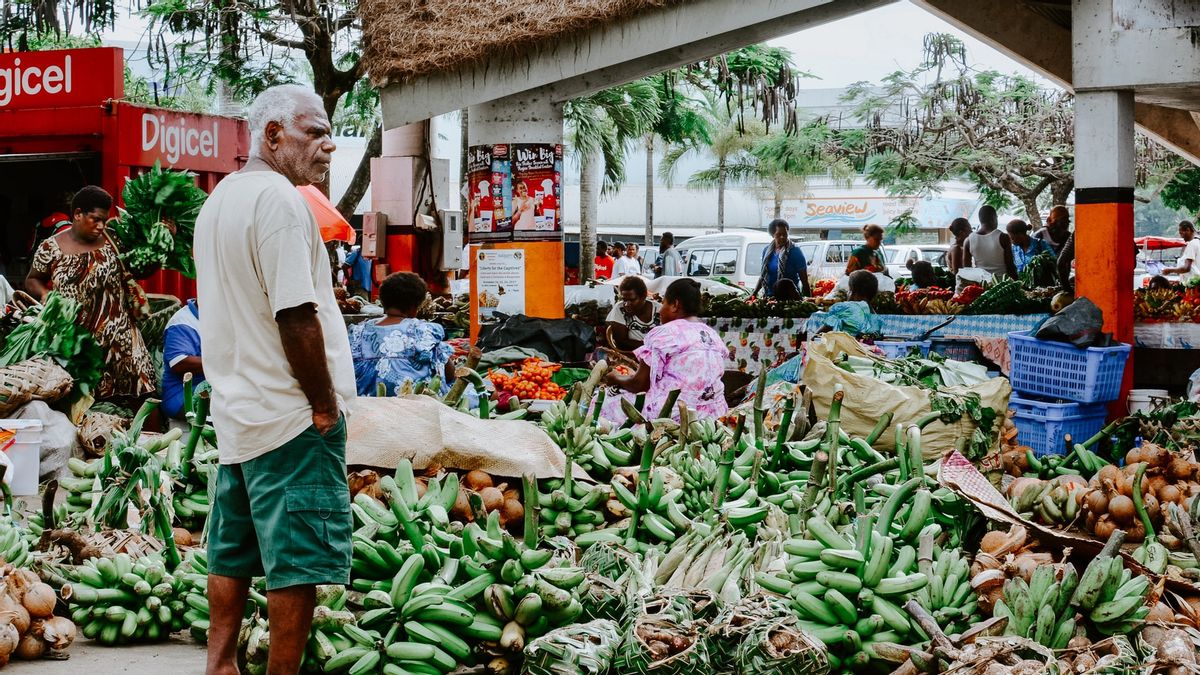JAKARTA - Every day, the number of positive cases of COVID-19 is increasing. In fact, less than three months ago, the corona virus was only found in China. Now, almost all countries are busy announcing the number of their citizens who have contracted COVID-19. However, this did not apply to Vanuatu.
In a country which if calculated has a distance of 1,800 km in eastern Australia with a total population of less than 300,000 people, has become one of the countries in the world that has no positive cases of COVID-19. Even so, the Vanuatu Government does not want to take heart. Therefore, they began to close the border, to cover all ports and airports.
As reported by The Guardian, the spokesperson for the Vanuatu Government regarding COVID-19, Russel Tamata said the aggressive steps taken by the government because it realized the ability of the country's resources to fight the outbreak would not be enough.
“We know how the virus spreads and when we look at our culture and how we live, it supports this virus. If it comes, it will be a disaster, "he said.
“At this point, we have to be strict with our borders - our fear is that if COVID-19 enters Vanuatu, it will spread very quickly and we don't have the resources and facilities to manage it. The slightest mistake will be very bad for us, "he added.
In line with the government's swift move, Vanuatu residents who own businesses such as restaurants and hotels have voluntarily closed their business premises. Even if someone is still open, their operating hours will be limited to no more than 21:00 local time.
Not only that, portable hand washing areas are also created along the main road of Port Vila and placed outside shops, banks and restaurants. In fact all the bars and restaurants in Vanuatu are compact to eliminate the on-site dining facilities. Food orders are only allowed for take away.
Community Supported
Even with the closing of the border, it is a hard blow for entrepreneurs in various sectors, such as hospitality and tourism. Moreover, the tourism business has contributed more than 40 percent of the total state revenue. Still, the majority of citizens support the policy.
One of the supporters is Chistoph Tahumpir, who works as a local businessman who exports sandalwood to China. He was forced to temporarily close his business and was a little worried that it would increase the unemployment rate. But he agreed the borders should be closed.
“If the virus comes here, I think it affects someone older in my family. Sadly again, we can't visit them in the hospital. That would be very sad, "he said.
Another irony, revealed by former Vanuatu lawmaker Kalfau Moli, managed to get the last flight from his native island of Malo to Port Vila before all inter-island travel operations were suspended.
Himself expressed concern that this virus entered Vanuatu. “As a father and a citizen of this country, I am very worried. We don't have the facilities to manage the virus, we don't even have water to wash our hands. Tell me where can we get water in east Malo? Or on the Whitesands in Tanna? "
"If a patient goes into a state of complication, we only have two ventilators available in the whole country" This is the # COVID19 reality for #Vanuatu and many of the world's small island developing states # SIDS. / tXzI3cD3kP
- UN-OHRLLS (@UNOHRLLS) April 8, 2020
Small Town in Italy
Italy is the country outside China which is worst affected by COVID-19. But who would have thought, there is a small town in Italy that has not registered a case of death or COVID-19 infection.
The city, which is located in northern Italy, has a population of no more than 3,300 families living there. But interestingly, there was not a single transmission of corona virus infection in the city called Vo.
City authorities and authorities have succeeded in reducing the rate of infection and transmission of COVID-19 by imposing strict quarantines, following the death toll in Italy due to the corona virus. Even though it does not have sophisticated medical equipment, this city has succeeded in taking steps to prevent COVID-19 as in South Korea, as summarized from Eubserver.
I was so alert. According to Vo City Councilor Alessio Turetta, "The pillars of our strategy for managing health emergencies are quarantine and testing."
The strategy was successful. How could it not, until Monday, March 23, the spread of the disease had stopped, and there were no new infections. Even so, not everyone in Vo is happy with the strategy being implemented. Regardless, it cannot be denied that the Vo City model has been successful.
The English, Chinese, Japanese, Arabic, and French versions are automatically generated by the AI. So there may still be inaccuracies in translating, please always see Indonesian as our main language. (system supported by DigitalSiber.id)













